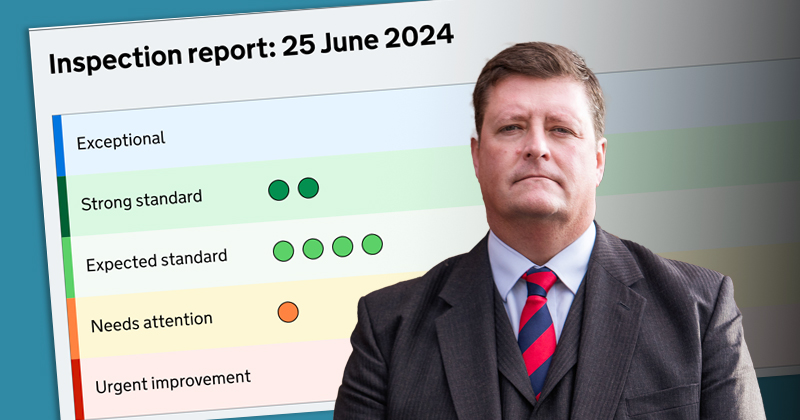Today’s announcements show that Ofsted has failed to grasp the opportunity to deal with the deep problems in the inspection system. They have not taken on board the concerns of the profession or drawn on their expertise to develop a better alternative. They have failed to listen and reform.
There was real hope that the profession would get genuinely positive change and solutions to the excessive stress, workload and poor staff mental health caused by Ofsted inspection and preparation.
When Bridget Phillipson said that the inspection system was “high stakes for teachers”, the profession expected and wanted to see real action.
High stakes and grades remain
The problems with the new system are multiple – but at the heart is the lack of progress at addressing the high-stakes consequences attached to a grades-based school inspection system. As heads and teachers know all too well, it is the high-stakes consequences which drive excessive stress and poor wellbeing.
This new system retains the problems of the old, but makes the high stakes even worse. The number of areas schools are graded against increase from 4 to 6 (or 7 including safeguarding), and monitoring visits from Ofsted are set to become more frequent.
The removal of the single-word judgment was promised as a step towards powerful change. Instead, we have more of the same. More pressure. More reductive labels. More ranking and competition, despite the wealth of evidence showing it is collaboration that we need for good educational outcomes.
Concerns over reliability and fairness
Of course, the NEU believes that all schools should and must be held accountable. But inspection must be proportional and must be fair. This is also in the interests of students and families.
Issues of fairness are fundamentally tied to issues of reliability and consistency, which have long been a concern for the profession. It remains to be seen how much of a difference Ofsted’s plans to improve its consistency will be, including the impact of the changes made to the inspection toolkits which have been heavily criticised due to the vague and imprecise language used to help inspectors come to judgments.
But what is already clear is that with so much at stake, the stress and anxiety of the workforce will be significant and long-lasting.
A rushed process
Last December, the NEU expressed its concern that the proposals were moving too quickly. We called for longer and deeper consultation and engagement with the profession to get right the change that is so desperately needed.
While there have been some welcome improvements to what Ofsted proposed in January (including an attempt to centre inclusion and greater understanding of school context), a new inspection system should never have been rushed through in less than a year. It should not be implemented with less than a term’s notice.
It is notable that one of the key conclusions of Ofsted’s Independent Wellbeing Impact Assessment is that ‘there was a loud and clear call for Ofsted to halt the roll-out of the current framework and to begin again in collaboration with the sector’.
We couldn’t agree more. It is why we are part of a coalition of organisations calling on the education secretary to intervene and work properly with the profession.
We cannot continue to lose vital staff. Transforming life chances for students means valuing and motivating leaders and teachers, but rather than setting us on a better path, Ofsted’s new inspection framework will only make matters worse.













Your thoughts